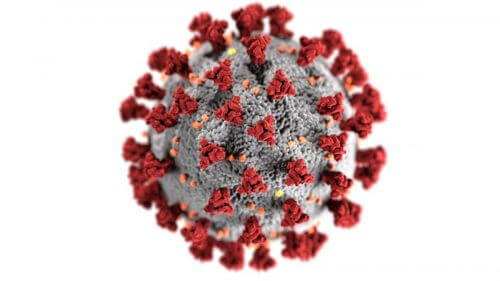Infectious disease researchers studying the new coronavirus have identified the speed of the virus' spread, a factor that could help public health officials in their efforts to eradicate the virus. The researchers found that the time between cases in a chain of infection is less than a week, and that more than 10% of patients were infected by someone who has the virus but does not yet have symptoms
From: University of Texas, Austin Texas. Translation: Hana Rosenfelder

In a study that is in the process of being published in the journal Emerging Infectious Diseases, a group of scientists from the USA, France, China and Hong Kong were able to calculate the serial interval of the virus. To measure a serial interval, scientists check how long it takes to discover symptoms in two people with the virus - the infectious one and the infected one.
Researchers found that the average serial interval of new coronaviruses in China was 4 days. It is also one of the first studies to estimate the rate of transmission of the virus without symptoms.
The speed of an epidemic depends on two things: how many people each case infects and how long it takes for the virus to spread between people [SIC]. The first index is called a reproduction index, the second is a serial interval. The short serial interval of COVID-19 means that outbreaks grow quickly and can be difficult to eradicate, the researchers say.
"Ebola, with a serial interval of several weeks, can be contained more easily than influenza, which has an interval of only a few days. Public health teams have much more time to identify and isolate cases before they infect others," said Lauren Ansel Meyers, a professor of integrative biology at the University of Texas. "The data indicate that the corona virus may spread like the flu. And that means we must react quickly and decisively to eradicate the threat that is materializing.
Myers and her team examined more than 450 case reports from 93 cities in China, and found strong evidence that asymptomatic people are transmitting the virus, a phenomenon known as pre-symptomatic transmission. According to the study, more than a tenth of the cases were infections from people who carried the virus but had not yet become ill.
Previously, researchers were unsure about pre-symptomatic transmission of the coronavirus. The new evidence can provide action directions for senior public health systems.
"There is evidence here that extensive control measures, such as isolation, quarantine, school closures, travel restrictions, and the cancellation of mass events may be required," Myers said. "Pre-symptomatic transmission definitely makes it difficult to contain."
Myers pointed out that in the situation of hundreds of new cases in the world every day, the data may show a different picture after some time. Reports of infection cases are based on people's memories of where they were, and who they were in contact with. If surveillance teams rush to isolate patients, it could skew the data.
"Our findings are corroborated by cases of silent transmission and an increase in the number of patients in cities around the world," Myers said. "This teaches us that outbreaks of COVID-19 can be elusive, and extreme measures are required."
Zhanwei Du of the University of Texas at Austin, Lin Wong of the Institut Pasteur in Paris, Chioka Chu of Dalian Minzu University, Ye Wu of Peking University and Benjamin J. Cowling of the University of Hong Kong also contributed to the research. Lauren Ansel Myers holds the Denton A. Cooley Centennial Professorship in Zoology at the University of Texas at Austin.
The research was funded by the US National Institutes of Health and the National Natural Science Foundation of China.
for the scientific article
to the notice of the researchers
More of the topic in Hayadan:
- The American government and IBM will allow corona researchers access to 16 of the most powerful supercomputers in the world
- An analysis of the coronavirus genome reveals that it was created by hybridization between two viruses
- We must sequence the genomes of corona patients and those of healthy people in order to improve treatment and develop a vaccine
We would be happy to help with translations on a voluntary basis. Please contact the website editor Editor@hayadan.org.il

One response
Hmmm, a pretty shallow article